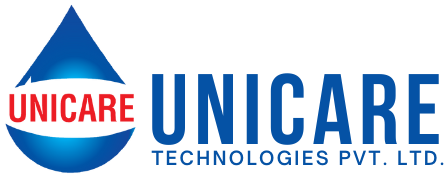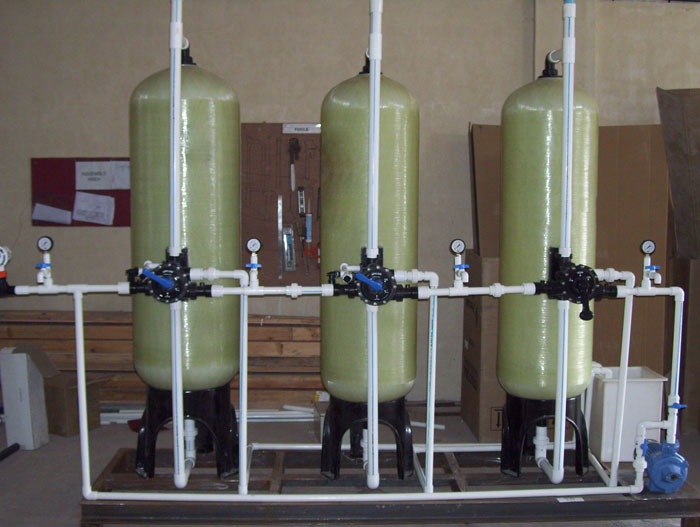
De Mineralization Water Plant
UNICARE TECHNOLOGIES DM Plants are designed based on latest cost effective ion exchange technique of counter current regeneration. The units consist of two corrosion free pressure vessels internally connected in series. The first column containing Cation absorbing exchanger and second column charged with an anion absorbing exchanger. The water flow Pass through the bed of a Cation exchanger then the bed of an anion exchanger and the systems remove dissolved salts from water to a specified degree.
Regeneration require after using total exchange capacity. The Cation Resin is regenerated with an acid and anion resin is regenerated with alkali solution. RWT consists of acid/alkali proof pressure vessel with internal fittings and initial charge of Cation and Anion exchanger, set of regeneration equipment, hydraulic ejectors, acid and alkali tanks and conductivity meter to monitor treated water quality. These DM Plants offer a practical range of capacities and flow rates necessary to serve wide variety of applications
Standard Portable Deionisers:
Standard portable deionisers are Upflow two-bed type compact and simple to operate with conductivity meter to monitor quality of treated water continuously when in operation.
Demineralisers:
Demineralisers can be connected directly to the Raw water and can use for continuous supply or instant requirement of demineralised water.
A demineralization water plant, also known as a deionization water plant or a DI plant, is a water treatment system designed to remove minerals and impurities from water. The process of demineralization involves the removal of both cations (positively charged ions) and anions (negatively charged ions) from the water, resulting in water that is almost completely free of dissolved solids.
Demineralization water plants typically use two types of ion exchange resin beds to remove cations and anions from the water. The cation exchange resin bed contains negatively charged beads that attract and remove positively charged ions, such as calcium, magnesium, and sodium. The anion exchange resin bed contains positively charged beads that attract and remove negatively charged ions, such as chloride, sulfate, and nitrate.
The process of demineralization is important in a variety of applications, including the production of ultrapure water for laboratory use, the production of high-quality water for industrial processes, and the production of high-purity water for use in the pharmaceutical and electronics industries.
Overall, a demineralization water plant is an important investment for businesses and industries that require high-quality water for their operations. By removing impurities and minerals from the water, demineralization water plants can improve the efficiency and reliability of industrial processes while also ensuring that the water is safe and pure

